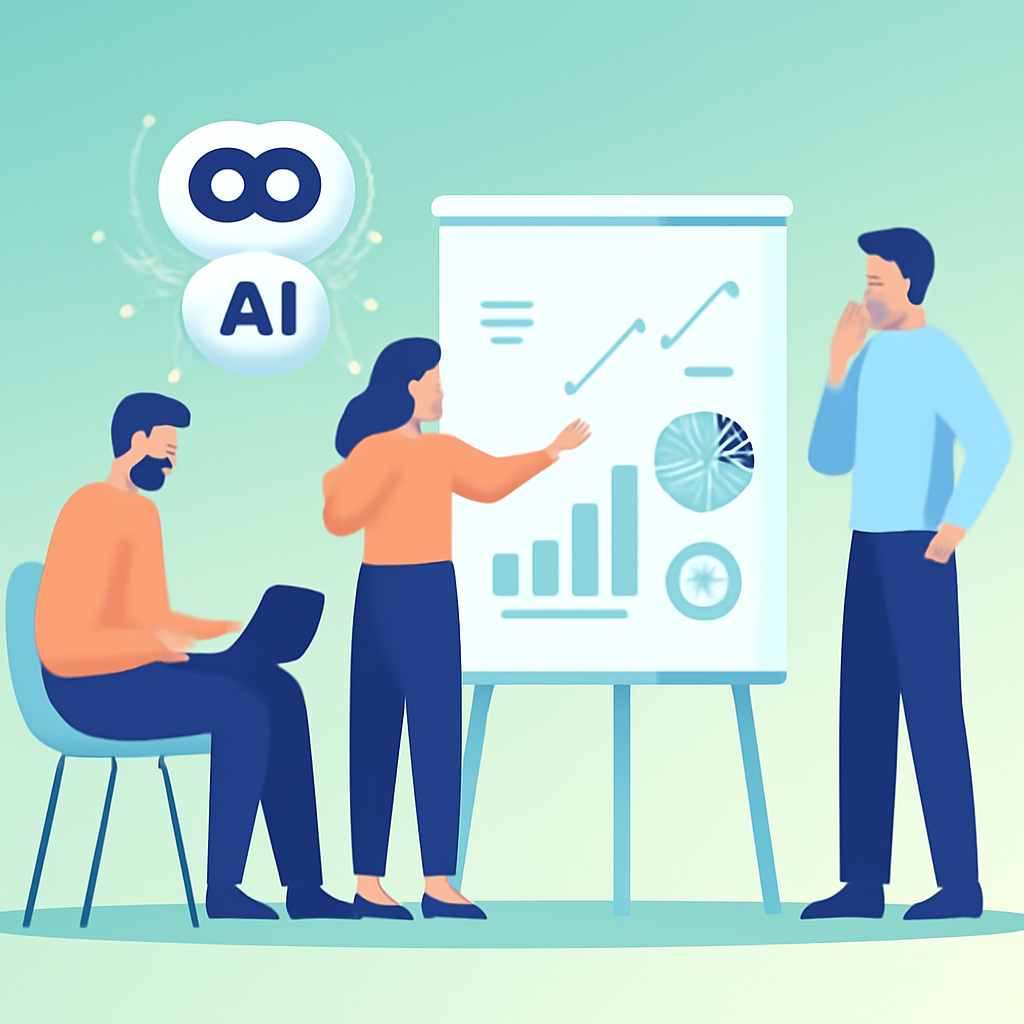Unlocking Sales: How AI Automation Is Transforming Lead Generation and Revenue Growth
Artificial intelligence (AI) is rapidly redefining the sales landscape, moving from a promising technology to a core part of modern business infrastructure. Organizations leveraging AI are seeing measurable benefits: from streamlined lead generation to improved conversion rates and substantial revenue growth. The shift goes beyond simple automation, with intelligent systems analyzing vast data sets to personalize outreach and identify high-value opportunities at scale.
Define the Situation
AI’s adoption in sales and lead generation is accelerating as organizations seek to outperform traditional methods. The sales process, once dominated by manual prospecting and intuition, is now powered by AI technologies like machine learning and natural language processing. Sales teams today can automate up to a third of their tasks, freeing professionals to focus on building relationships and closing deals.
The competitive landscape is changing. Early AI adopters report faster deal cycles, increased lead volume, and higher forecast accuracy. These results are enabled by robust integrations between AI, CRM systems, and marketing platforms, creating a unified ecosystem with real-time insights at every customer touchpoint. As a result, the gap between lead interest and engagement is shrinking rapidly, and the financial payoffs are compelling.
Benefits and Risks
Benefits
Organizations are reporting dramatic gains from automated lead generation and AI-driven sales solutions. John Boler from BD Pros shared, “We asked chat for recommendations and predictions on what it would take to convert current users… Got some really great forecasted data… It was definitely good points for our team to review and analyze.” This highlights AI’s value in improving campaign planning with actionable, data-driven insights.
Agent-based AI systems are quickly maturing. Todd Hanson described his move toward “creating an agent and leveraging AI for BizDev and lead generation,” underscoring the trend toward autonomous, intelligent prospecting. Phil Gerard noted how AI helps “analyze content, recommend plans, research top-performing posts, and curate a personal brand.” These examples reveal concrete efficiency gains from operationalizing AI solutions.
Fully integrated workflows are also possible. Pete Essex at 360 Consulting explained, “We actually have agents that can write playbooks that automate our process… [and] do warm introductions, analyze personality profiles, construct emails, and update the CRM automatically.” In one case, this system helped stabilize and grow a struggling $60 million company.
Joseph Frost highlighted the impact of automated customer engagement at a dental practice: “A CMO found an AI vendor that builds social media outreach and an AI voice appointment center… The AI fields all inquiries 24/7. They’ve gotten 15 new clients in three months. It’s all automated.” Here, AI is not just supplementing human effort—it’s taking over high-value, round-the-clock lead nurturing and appointment setting.
In addition to these real-world examples, organizations adopting AI in sales processes see higher conversion rates, reduced sales cycles, improved lead qualification, and greater operational efficiency. The average conversion rate for AI-assisted sales teams is significantly higher than that of traditional teams, and AI reduces the average sales cycle by as much as 40%.
Risks
Despite these advantages, risks remain. Data quality and system integration require ongoing attention; organizations must overcome silos and invest in unified data to maximize AI effectiveness. “Sometimes you gotta watch for the host nations and things… you have to double check everything AI does at this point. Eventually it may get better, but it’s quite good. It’s probably 95% accurate,” Essex cautioned, highlighting the need for human oversight.
There are also ethical considerations. As AI automates more of the sales process, transparency in customer communications, data privacy, and algorithmic fairness must be proactively managed. Without proper oversight, organizations risk poor decision-making or damage to customer trust.
Future Prospects or Impacts
The pace of change in AI-powered sales is accelerating, and future developments promise even greater impact. Intent-based targeting, for example, enables sales teams to recognize and act on real-time buyer signals, serving personalized content at critical moments in the customer journey.
Agentic AI—which can operate independently across channels and touchpoints—is on the rise. These autonomous systems optimize messaging, timing, and prospect engagement, scaling business development without proportional increases in personnel. As AI becomes more multimodal, handling voice, text, and visual cues, it will deliver highly contextualized customer engagement across platforms.
The future also brings unified data ecosystems, combining CRM, marketing automation, and analytics to produce real-time intelligence and predictive recommendations. Organizations investing in these ecosystems will be able to anticipate customer needs, respond swiftly, and maintain a leading edge over competitors. Meanwhile, ongoing advancements in ethical AI will be critical to maintaining compliance and trust as automation deepens.
Takeaways and Lessons
Key lessons emerge from the current wave of AI adoption in sales:
- Strategic integration pays off: Aligning AI with data, CRM, and outreach tools amplifies value. Organizations should audit their data ecosystems, consolidate platforms, and prioritize real-time integration to improve results.
- Automation enhances, not replaces: AI handles repetitive prospecting and outreach tasks, but sales professionals add value through relationship building, judgment, and creative strategy.
- Continuous oversight is vital: Despite achieving approximately 95% accuracy, AI still requires human review for quality control, especially in sensitive or high-value segments.
- Investment yields strong returns: Median ROI for AI adoption in sales is under six months, with annualized gains above 300%. These returns are driven by better lead targeting, higher conversion rates, and reduced operational costs.
Conclusion
AI has transformed sales and lead generation from an experimental advantage into a core business capability, delivering measurable improvements in conversion rates, efficiency, and customer engagement. Real-world applications—whether developing strategic campaigns, enabling agentic outreach, or automating appointment settings—demonstrate that AI is maturing rapidly. As AI technologies advance and integrate deeper into the sales process, organizations that act decisively and manage ethical considerations will be best positioned to achieve accelerated growth, enhanced market responsiveness, and sustainable competitive advantage.
Sources
- McKinsey: Unlocking sales productivity through AI-powered automation
- Forrester: The 2024 State of AI in Sales
- Gartner: AI in CRM and Sales
- CertaintyNews: How AI Is Transforming B2B Lead Generation
- CertaintyNews: Building AI-Integrated Sales Teams
- HubSpot: AI’s Impact on Sales Success Metrics
- Harvard Business Review: How AI Is Changing Sales

